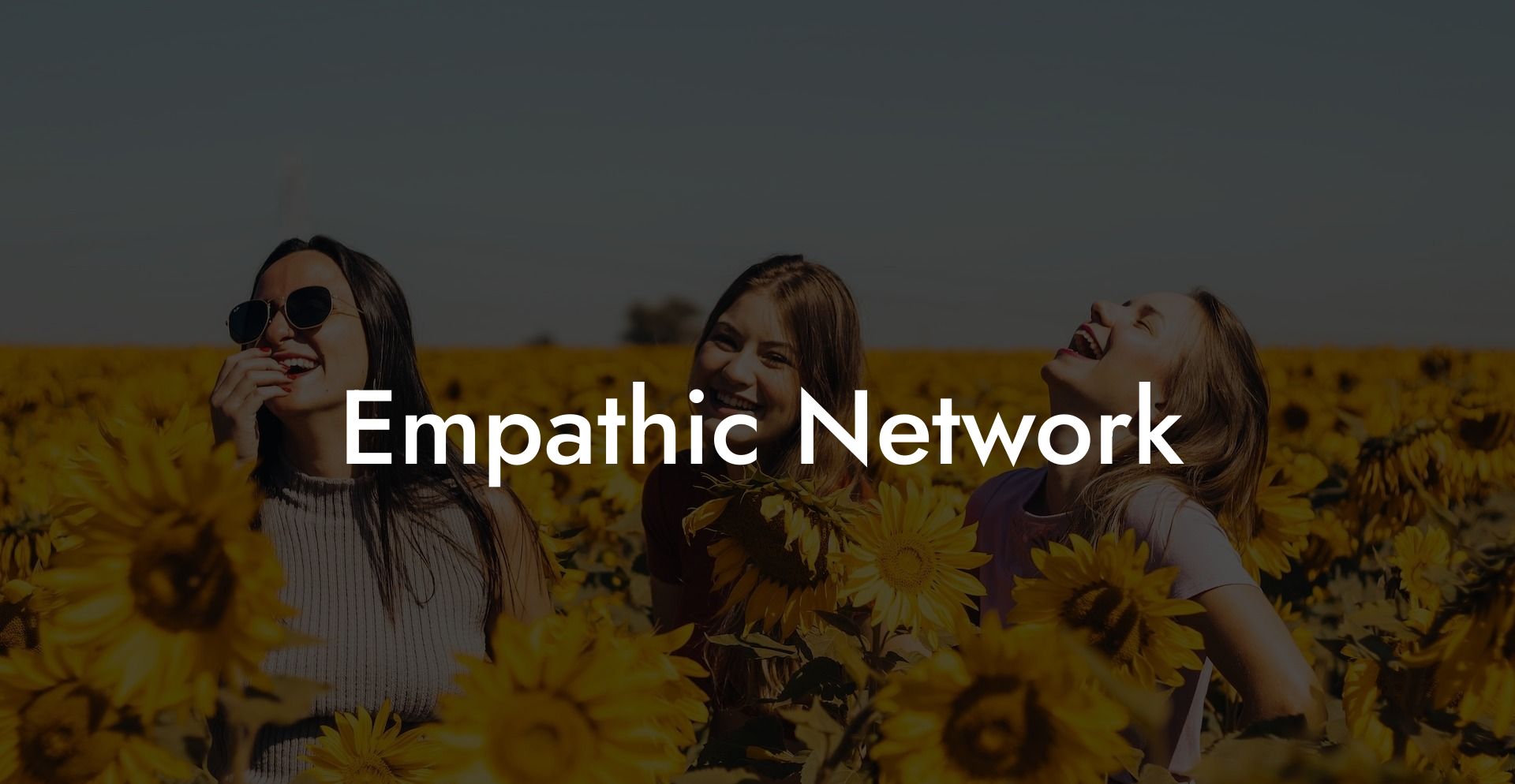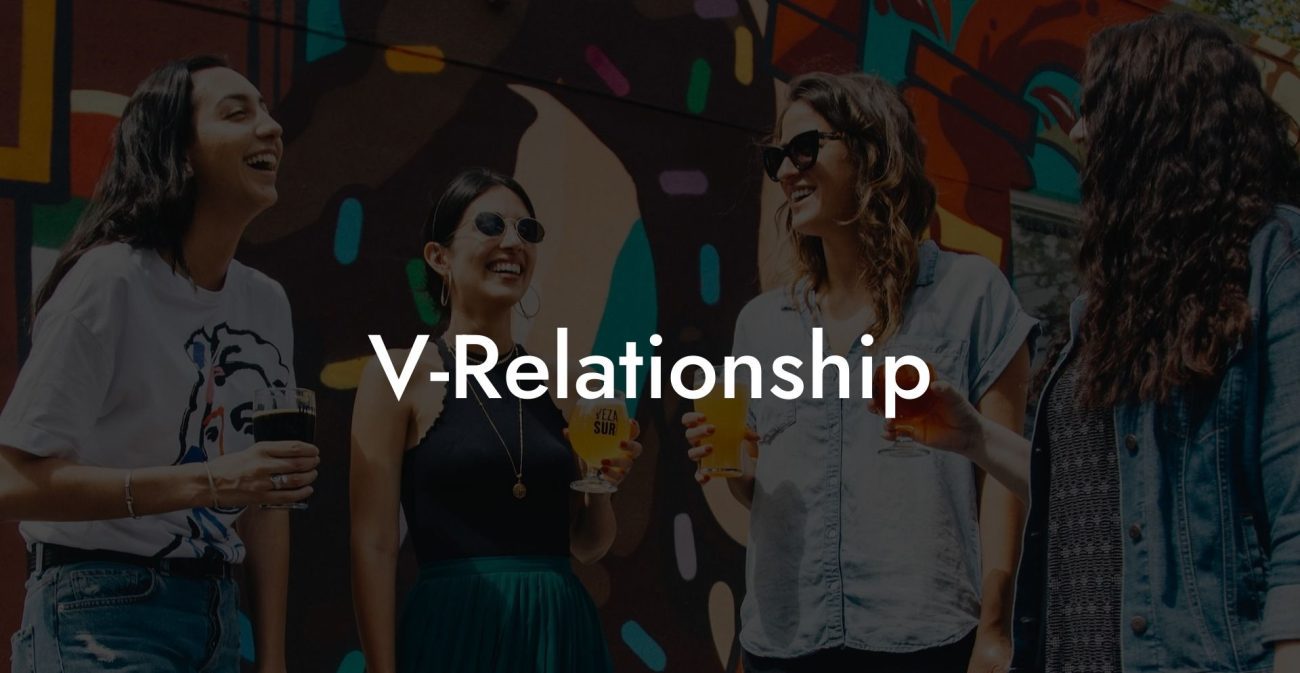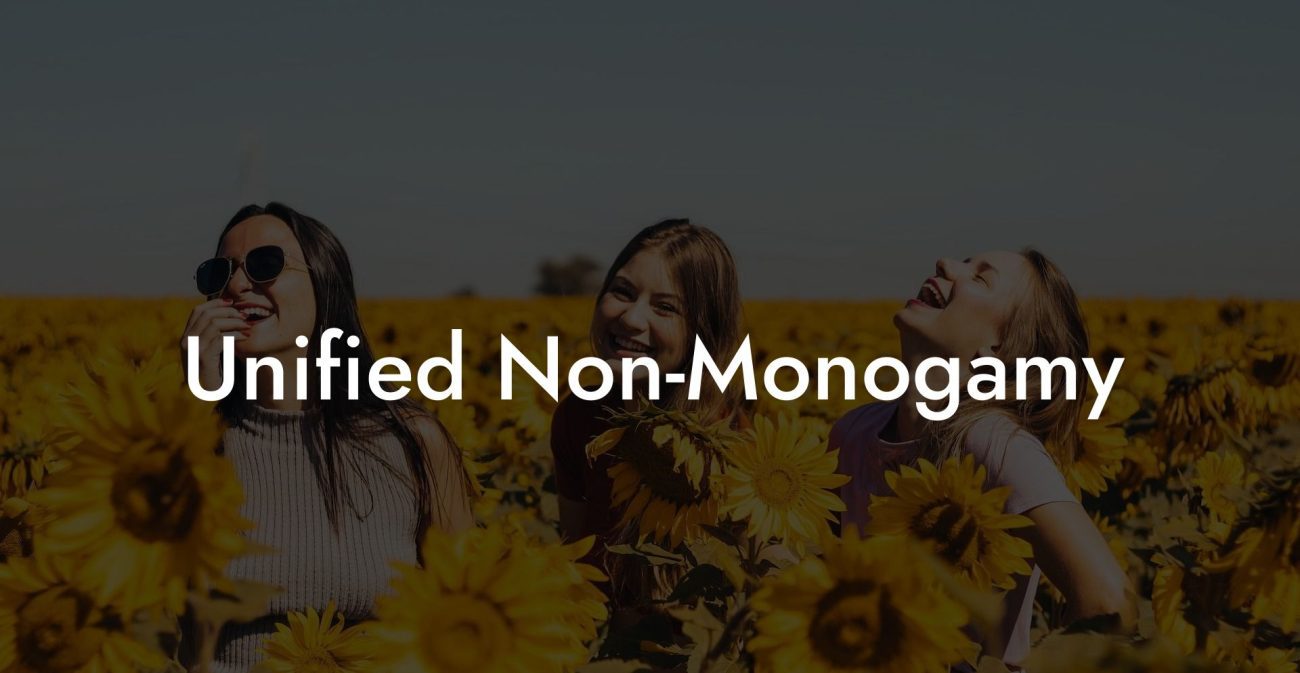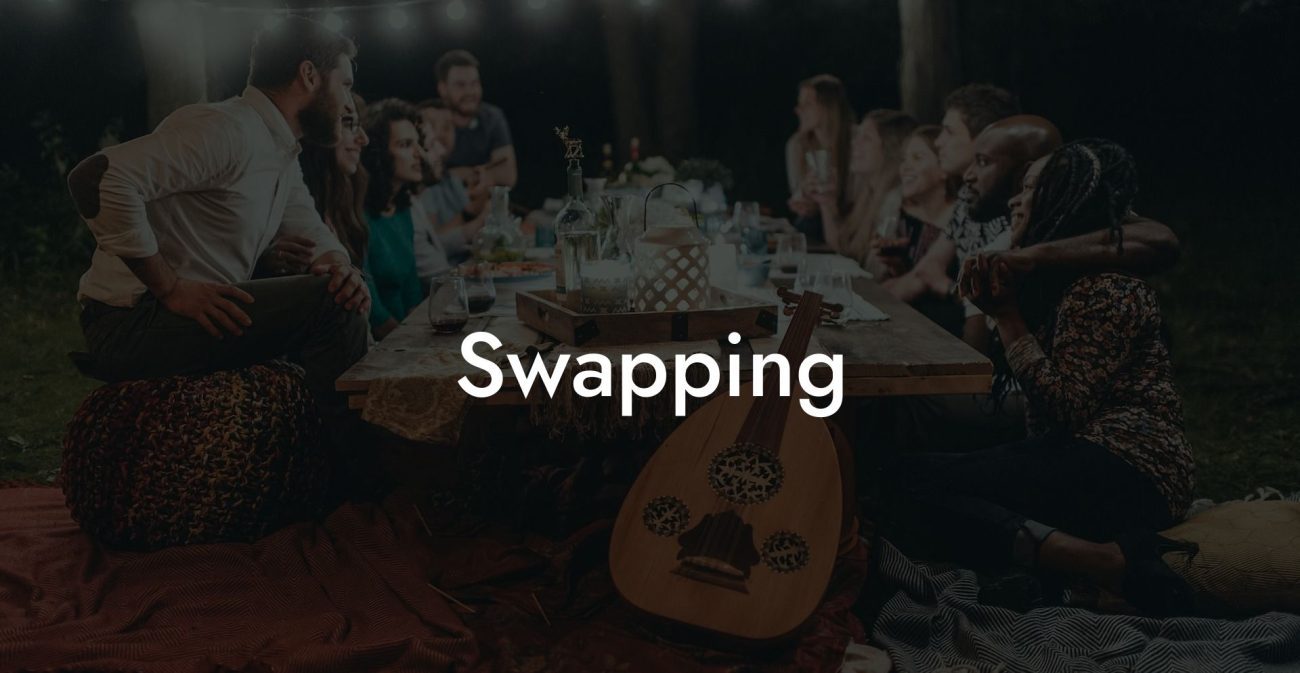Empathic Network

Imagine a relationship network where every heartbeat syncs with a collective rhythm of understanding, where each connection is not only felt deeply but also nurtured with genuine care and attention. Welcome to the world of Empathic Network—a vibrant tapestry of emotional connections in ethical non monogamy where empathy isn’t just an occasional feeling but the very foundation of how relationships operate. Think of it as a living organism, a network of hearts that beat in unison, each pulse reinforcing the bonds that tie you together. Ready to explore a term that transforms how we view love and support? Let’s dive into the expansive, ever-adapting concept of Empathic Network.
Have you ever wondered if monogamy is just a stupid little experiment? Open relationships, polyamory, relationship anarchy...find out which relationship dynamic suits you best with our one minute relationship test. See if you are just conforming to "societal norms". Reveal your truth >>
Quick Links to Useful Sections
- The Ethical Non Monogamy Term: Empathic Network
- What Is an Empathic Network?
- Core Principles of an Empathic Network
- Historical and Cultural Perspectives on Empathic Networks
- From Isolated Bonds to Collective Connection
- Cultural Shifts in Modern Love
- Everyday Dynamics of an Empathic Network
- Living Within a Supportive Web of Connections
- Integrating New Experiences and Shared Growth
- Adaptive Boundaries and Continuous Negotiation
- Benefits of Embracing an Empathic Network
- Strengthened Collective Resilience
- Deepened Emotional Bonds
- Personal Empowerment and Growth
- Improved Communication and Conflict Resolution
- Flexibility and Adaptability
- Challenges of Maintaining an Empathic Network
- Managing Complex Communication
- Balancing Individual Autonomy with Collective Support
- Dealing with External Judgment and Misunderstanding
- Handling Continuous Change and Uncertainty
- Frequently Asked Questions (FAQ)
- Resources and Community Support: Your Next Steps
The Ethical Non Monogamy Term: Empathic Network
What Is an Empathic Network?
An Empathic Network refers to a collective of relationships that are built on a shared commitment to empathy, open communication, and mutual emotional support. In this model, every partner is not only attuned to their own feelings but also actively invested in understanding and uplifting the emotions of others. It’s a network where compassion and vulnerability serve as the glue that binds diverse connections together, creating a supportive ecosystem where every interaction contributes to the collective well-being.
In an empathic network, love is not a solitary journey—it’s a shared experience. Each member plays a role in ensuring that the emotional needs of all are met, and every positive emotion, whether it’s joy, relief, or excitement, resonates throughout the entire network. This interconnectedness transforms individual relationships into a dynamic, living community that thrives on collective growth and understanding.
Core Principles of an Empathic Network
- Collective Empathy: Every partner is committed to actively listening to, understanding, and supporting one another’s emotional experiences.
- Mutual Vulnerability: Sharing personal feelings and being open about insecurities is encouraged, creating a safe space for genuine connection.
- Transparent Communication: Honest, ongoing dialogue is essential to ensure that all voices are heard and that everyone’s needs are respected.
- Reciprocal Support: Each member contributes to the emotional well-being of the group, ensuring that care and encouragement flow in every direction.
- Adaptability and Growth: The network is fluid, with relationships continuously evolving as each individual grows and their needs change.
- Shared Responsibility: The success of the network depends on every member’s commitment to upholding a culture of empathy and respect.
Historical and Cultural Perspectives on Empathic Networks
From Isolated Bonds to Collective Connection
For centuries, traditional relationship models emphasized exclusivity and individual bonds, often isolated within rigid frameworks. However, as societal attitudes evolved through social revolutions and the rise of progressive values, people began to recognize the transformative power of collective support. Empathic Networks emerged as a natural evolution in communities that embraced non-traditional relationships, where chosen families and community support were not just alternatives but vital lifelines.
Early non monogamous groups, especially within marginalized communities such as LGBTQ+ circles, had to create their own support structures to navigate a world that often rejected their existence. Over time, these practices evolved into more formalized systems that valued openness, shared emotional responsibility, and the beauty of collective care—a precursor to what we now call an Empathic Network.
Cultural Shifts in Modern Love
In the modern era, particularly among Millennials and Gen-Z, there is a growing acceptance of relationships that break free from traditional norms. The rise of social media, digital communities, and relationship education has fostered a broader understanding of what it means to connect deeply with others. Empathic Networks resonate with those who see love as a shared, expansive resource rather than a limited commodity.
Today’s cultural landscape is ripe for the Empathic Network model, as it celebrates diversity, inclusivity, and the idea that every individual’s emotional well-being is interconnected. This perspective encourages us to build relationships that are resilient, adaptive, and deeply rooted in mutual care and empathy.
Everyday Dynamics of an Empathic Network
Living Within a Supportive Web of Connections
In an Empathic Network, your relationships function like an intricate web where every strand supports and reinforces the others. Daily life in such a network involves regular communication, shared experiences, and a continual exchange of emotional support. Whether it’s a quick text check-in, a scheduled group chat, or spontaneous meet-ups, every interaction adds to the collective strength of the network.
Imagine starting your day with a group message where everyone shares a positive thought or a moment of gratitude. Throughout the day, partners might update each other on their emotional states, offering encouragement or simply celebrating small victories. This constant flow of communication and support creates a resilient foundation that adapts to each individual’s changing needs.
Integrating New Experiences and Shared Growth
One of the most enriching aspects of an Empathic Network is the integration of new experiences. Whether it’s exploring a new hobby, traveling to an unfamiliar destination, or engaging in creative projects together, shared experiences foster deeper bonds and create lasting memories. These collective adventures not only enhance individual growth but also weave a tapestry of shared identity and mutual purpose.
Regularly planning group outings or collaborative projects can transform everyday interactions into opportunities for profound connection. It’s about celebrating every moment of growth—big or small—and recognizing that each experience adds another layer to the collective narrative of your relationships.
Adaptive Boundaries and Continuous Negotiation
Just as every relationship evolves, the boundaries within an Empathic Network are also fluid. Partners continuously negotiate what is comfortable and acceptable, adapting to new circumstances as they arise. This process of boundary renegotiation ensures that everyone feels secure, respected, and supported.
For instance, you might set initial guidelines about personal space and time commitments, but as the network grows and individual needs change, these boundaries may require adjustment. Regular, open discussions about these shifts are a hallmark of a healthy Empathic Network.
Benefits of Embracing an Empathic Network
Strengthened Collective Resilience
One of the standout benefits of an Empathic Network is the heightened resilience that comes from shared emotional support. When every partner contributes to the collective well-being, challenges are met with a united front.
- Shared Support: A diverse network means that you have multiple sources of comfort, advice, and encouragement.
- Emotional Synergy: Positive emotions and achievements spread throughout the network, creating an uplifting environment for everyone involved.
Deepened Emotional Bonds
Through continuous, empathic engagement, relationships within an Empathic Network naturally deepen over time. As you share your vulnerabilities, celebrate successes, and navigate life’s challenges together, your bonds become more complex and meaningful.
- Layered Intimacy: Every shared experience contributes to a deeper, multifaceted connection.
- Increased Trust: Consistent, honest communication builds trust, making the network more robust and secure.
Personal Empowerment and Growth
Being part of an Empathic Network encourages you to explore your own emotional landscape and embrace personal growth. The supportive environment allows you to confront challenges, learn from your experiences, and evolve as an individual.
- Self-Awareness: Regular self-reflection and open dialogue help you understand your needs and strengths better.
- Mutual Empowerment: As every member of the network grows, the entire group becomes stronger and more adaptive.
Improved Communication and Conflict Resolution
The emphasis on continuous, transparent dialogue in an Empathic Network enhances overall communication skills. When conflicts arise, the network is better equipped to resolve them constructively.
- Regular Check-Ins: Scheduled conversations help identify potential issues before they escalate.
- Active Listening: By ensuring that everyone’s voice is heard, misunderstandings are minimized, and conflicts are resolved more amicably.
Flexibility and Adaptability
Perhaps one of the greatest advantages of an Empathic Network is its inherent flexibility. As life changes, so do your relationships, and an empathic network is built to adapt to these shifts without losing its core strength.
- Adaptive Boundaries: The willingness to revisit and revise boundaries ensures that the network stays relevant to each partner’s evolving needs.
- Resilient Connections: A flexible network can better handle external pressures and personal transitions, maintaining stability amid change.
Challenges of Maintaining an Empathic Network
Managing Complex Communication
With multiple voices and evolving dynamics, communication can become complicated. It requires time, effort, and a commitment to active listening from all members.
- Tip: Regular group and individual check-ins can help streamline communication and keep everyone aligned.
- Tip: Using digital tools like shared calendars and group messaging apps can simplify coordination.
Balancing Individual Autonomy with Collective Support
While an Empathic Network emphasizes collective well-being, it’s essential that each partner also maintains their individual autonomy. Striking this balance can be challenging.
- Tip: Engage in honest discussions about personal boundaries and ensure that everyone’s individual needs are respected.
- Tip: Encourage both group activities and individual time, fostering a healthy balance between collective support and personal space.
Dealing with External Judgment and Misunderstanding
Despite growing acceptance of alternative relationship models, you may still encounter external judgment from those who adhere to traditional views on relationships. This can add pressure to maintain your network.
- Tip: Build a strong internal community that supports your values and nurtures your emotional well-being.
- Tip: Educate others when you feel comfortable, and remember that your network’s strength comes from its authenticity, not from external validation.
Handling Continuous Change and Uncertainty
The fluid nature of evolving relationships means that uncertainty is a constant companion. Managing this uncertainty without feeling overwhelmed is a significant challenge.
- Tip: Cultivate a growth mindset that views change as an opportunity for learning rather than a threat.
- Tip: Regular self-reflection and open dialogue can help transform uncertainty into a catalyst for deeper connection.
Frequently Asked Questions (FAQ)
1. What are evolving relationships in ethical non monogamy?
Evolving relationships are those that continuously grow, change, and adapt over time, reflecting personal growth and shifting emotional needs. They are dynamic, fluid, and built on the principle that love is an ever-changing journey.
2. How do evolving relationships differ from traditional relationships?
Traditional relationships are often viewed as static and unchanging, whereas evolving relationships embrace change, regular renegotiation of boundaries, and continuous personal and collective growth.
3. What are the core principles of evolving relationships?
The core principles include fluidity, adaptability, intentional growth, open communication, and mutual empowerment. These ensure that relationships evolve in a way that honors each partner's needs.
4. How does an Empathic Network relate to evolving relationships?
An Empathic Network is a collective of evolving relationships where each connection is nurtured through shared empathy, open dialogue, and mutual support. The network adapts and grows as each member evolves.
5. What benefits do evolving relationships offer?
They offer deeper emotional connections, enhanced communication, personal empowerment, collective growth, and the ability to adapt to life’s changes without losing the essence of the bond.
6. What challenges might arise in evolving relationships?
Challenges include managing uncertainty, balancing stability with change, overcoming a fear of vulnerability, and handling external societal pressures that favor traditional, static models of love.
7. How important is communication in evolving relationships?
Communication is critical. Regular, open dialogues help partners renegotiate boundaries, address uncertainties, and ensure that the relationship remains adaptive and supportive.
8. Can evolving relationships apply to both monogamous and non monogamous setups?
Yes, the concept of evolving relationships is about the natural progression of emotional bonds and can be applied to any relationship model that values growth and adaptation.
9. What strategies can help balance stability with change?
Regular check-ins, adaptive boundary-setting, self-reflection, and a commitment to mutual growth are key strategies that help maintain a stable core while allowing for natural evolution.
10. How do shared experiences contribute to evolving relationships?
Shared experiences create new layers of connection and deepen emotional bonds, making relationships more resilient and dynamic as they continuously adapt and grow.
11. What role does self-care play in evolving relationships?
Self-care is vital—it keeps you emotionally and physically balanced, enabling you to contribute positively to both your individual growth and the collective strength of your relationship network.
12. Where can I find more resources on evolving relationships?
Additional resources include books like The Ethical Slut by Dossie Easton & Janet Hardy, podcasts such as Multiamory, and online communities like r/polyamory that focus on ethical non monogamy and mindful relationship practices.
Resources and Community Support: Your Next Steps
- The Ethical Slut by Dossie Easton & Janet Hardy – A groundbreaking book that explores ethical non monogamy and offers insights into the evolving nature of modern relationships.
- Podcasts: Listen to Multiamory and other relationship-focused podcasts for real-life stories, expert advice, and practical strategies on nurturing evolving relationships.
- Online Communities: Join forums like r/polyamory to exchange ideas, ask questions, and connect with like-minded individuals who are embracing fluid, evolving connections.
- Workshops and Webinars: Attend events on relationship psychology and ethical non monogamy to deepen your understanding and build a supportive network.
- Therapy and Counseling: Consider professional guidance if you need help managing the complexities of evolving relationships and ensuring that your connections remain strong and adaptable.
By exploring these resources and applying the practical strategies outlined in this guide, you can cultivate a rich, informed understanding of evolving relationships. Embrace the journey of continuous growth, celebrate the beauty of change, and nurture connections that evolve with you over time. With mindfulness, open communication, and a commitment to mutual empowerment, your love can become a vibrant, ever-changing masterpiece.
Lost & confused by all of the terms, types and seemingly made up 3 letter acronyms?? We've got you. Check out our Ethnical Non-Monogamy Dictionary >>
Useful Interruption: Not sure which relationship vibe fits you best? Take our Relationship Test, it’ll give you the real insight into your natural relationship style. Then, dive into our binge-worthy guides (from the tried-and-true to the “wait, that’s a thing?”) and find the perfect relationship type for your life:
- Monogamy
- Open Relationships
- Ethical Non-Monogamy
- Solo Polyamory
- Non-Hierarchical Polyamory
- Hierarchical Polyamory
- Relationship Anarchy
- Swinging
Now back to the main article but yeah take the test...












